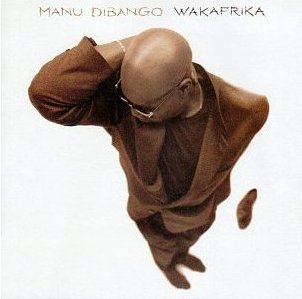
| Artist: | Manu Dibango |
| Title: | Wakafrika |
| Released: | 1994 |
| Label: | Fnac Music |
| Time: | 67:14 |
| Producer(s): | George Acogny |
| Appears with: | |
| Category: | World Music |
| Rating: | *******... (7/10) |
| Media type: | CD |
| Purchase date: | 2000 |
| Price in €: | 18,99 |
| Web address: | www.manudibango.net |